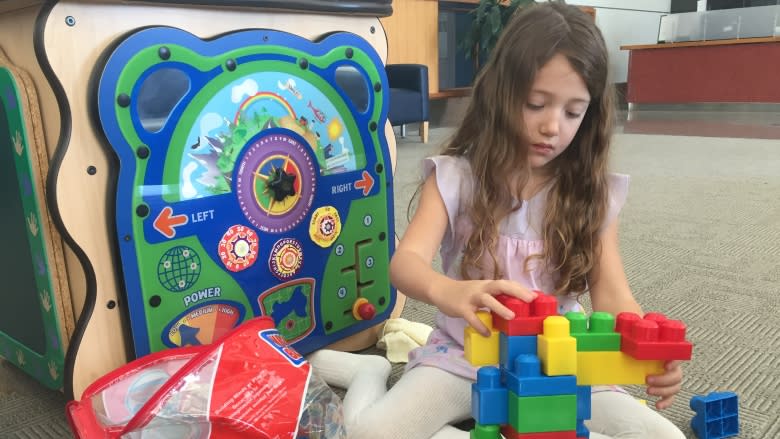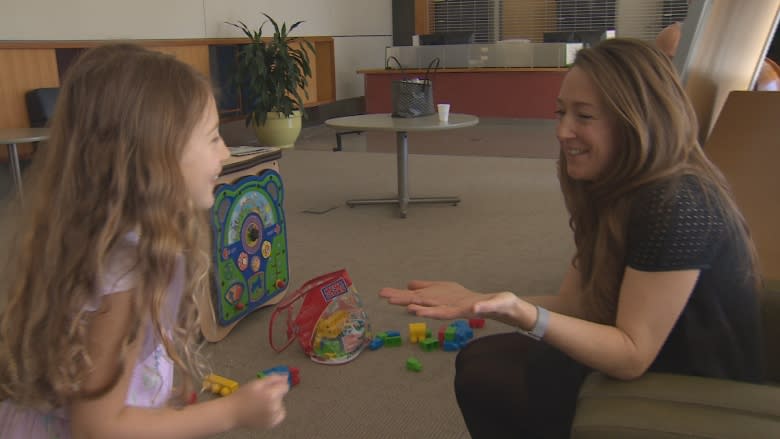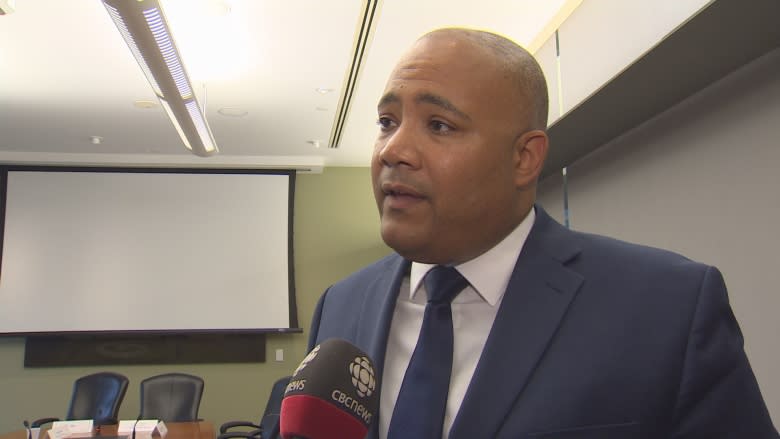Mom wants 'a world of compassion' for her daughter living with autism
Five-year-old Amira loves butterflies, and just like a butterfly, she wants to spread her wings and fly.
But her brain works a bit differently than other kids. She was diagnosed with autism when she was two years old.
"I think about how she manages life and everything is a little more difficult, a little bit more heightened, often a little bit more stressful," her mother Adrienne Zarem said.
Zarem spoke with CBC News Toronto on Sunday, also World Autism Awareness Day, and said some people don't know how to react when they meet Amira.
"Honestly, there are moments when I don't know what to do," she said. "I completely appreciate people's sense of hesitation when they're trying to interact with someone with autism because sometimes things go south for whatever reason and it's tough to unpack and understand."
But she wants people to know children with autism are smart, funny and affectionate. They just learn in a different way.
"Taking in the news that she would live with this her entire life was tough," said Zarem.
"There was grief attached to the idea that she might not do the things we dreamed that she would do. But every day she matures and every milestone she reaches, we're more and more excited about the fact that she's going to lead a very meaningful life."
Difficulties and strengths
Dr. Evdokia Anagnostou, a senior clinician scientist at Holland Bloorview Kids Rehabilitation Hospital, says autism comes with both difficulties and strengths.
"The difficulties have to do with social interaction and some repetitive behaviours," she said. "The strengths [can] have to do with being detail-oriented and compliant and following the rules, and having a different perspective on the world. They look at the world from outside the box."
About one in 68 children in the U.S. are somewhere on the autism spectrum, according to Anagnostou. Canadian data is not readily available, but she said the latest from Southeastern Ontario shows about one in 63 kids in Ontario live with autism.
Right now, treatment is mostly therapy-based for autism, but Anagnostou explained, as researchers learn more about the biology and inner workings of the brain, the field is moving towards developing medications and targeted treatments.
"We're working to decrease the distress and the dysfunction that comes with autism, without necessarily changing the features that make people with autism special," she said.
Help is on the way
The province is set to roll out a $333-million Ontario Autism Program in June. Families will have the option of either using government-funded services or receiving direct funding to pay for therapy.
"I'm convinced that if we can do this properly and maximize those resources, Ontario will be the best place to service people with autism," Children and Youth Services Minister Michael Coteau told CBC Toronto.
About $5.5-million will go towards five diagnostic hubs.
"My goal intention is to get people diagnosed early and make sure they're on a pathway to get the services they need so they can live long, productive lives and contribute back to society as much as they possibly can."
And what does Adrienne want for Amira?
"I wish for a world of compassion for Amira," she said. "I want for her and for other kids with autism, a world where people will slow down, will take a breath and give them the time and space that they need to get through the difficulties they're having."





